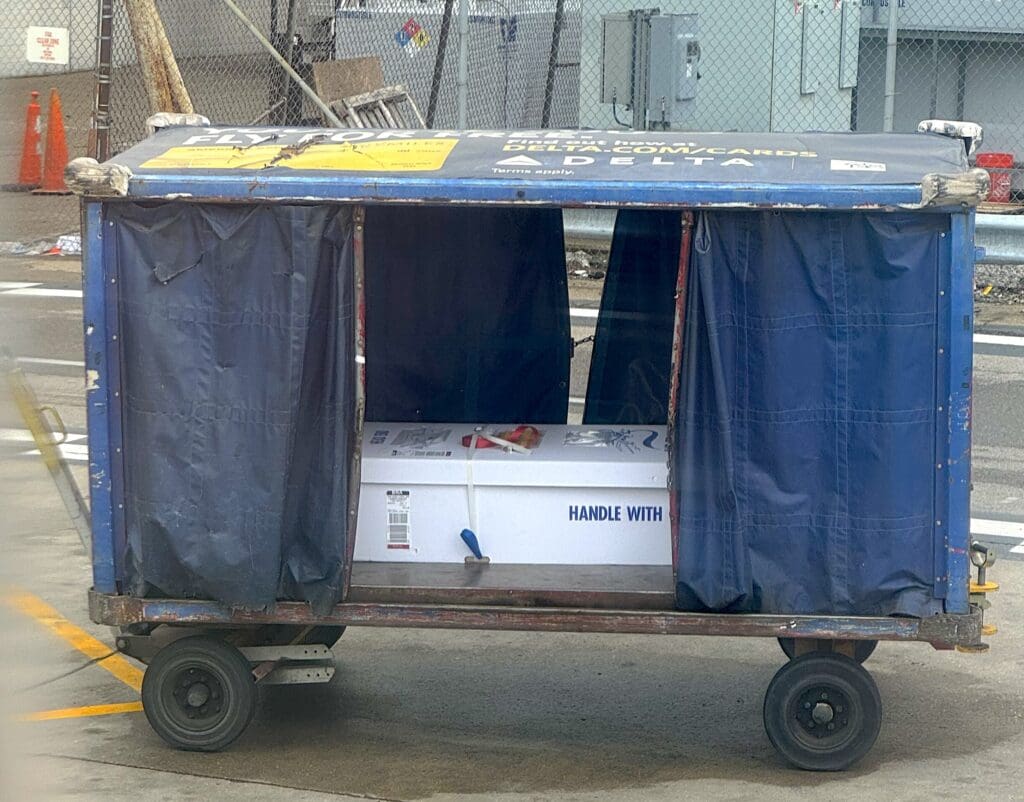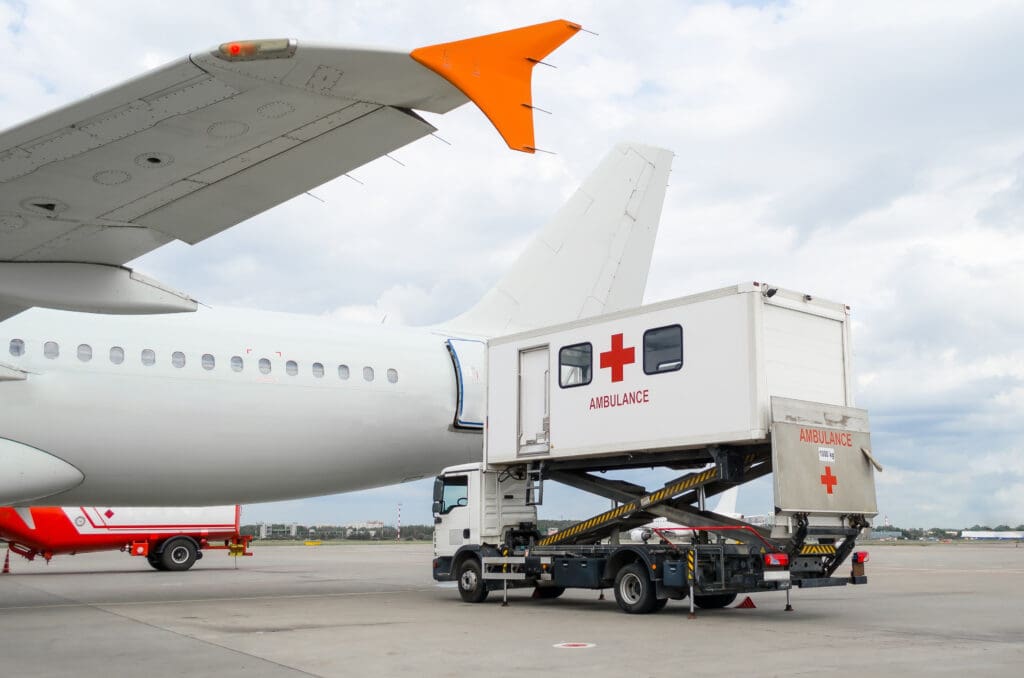Advertiser Disclosure: Eye of the Flyer, a division of Chatterbox Entertainment, Inc., is part of an affiliate sales network and and may earn compensation when a customer clicks on a link, when an application is approved, or when an account is opened. This relationship may impact how and where links appear on this site. This site does not include all financial companies or all available financial offers. Opinions, reviews, analyses & recommendations are the author’s alone, and have not been reviewed, endorsed, or approved by any of these entities. Some links on this page are affiliate or referral links. We may receive a commission or referral bonus for purchases or successful applications made during shopping sessions or signups initiated from clicking those links.
Imagine you’re comfortably cruising at altitude when the announcement chimes ring out: there’s a medical emergency. It’s a stressful situation for everyone on board, and it raises a question most of us don’t consider: what happens if a passenger dies on an airplane? While uncommon, deaths do occur in flight.
Top Priority: Medical Attention
Flight attendants are trained extensively to handle medical emergencies. They’ll rush to the passenger, assess the situation, and initiate CPR or use an AED (automated external defibrillator) if necessary. They’ll also try to locate any medical professionals traveling on the flight — a doctor’s presence can be crucial in these critical moments.
Unfortunately, revival attempts aren’t always successful. If resuscitation efforts continue for a significant time (often 30 minutes) with no signs of life, the person may be presumed dead. However, only a doctor can legally declare death onboard. This is where the big decision comes in: should the plane divert to the nearest airport or continue to the destination?
Several factors come into play here — and the proximity to the planned destination significantly impacts the choice. If the flight is only a short distance from its destination, continuing the journey might be the quickest way to get the deceased passenger to medical personnel on the ground. Weather conditions are another important consideration. Diverting to an airport with poor weather visibility or strong winds could pose an additional risk. Finally, the availability of a suitable emergency landing site plays a role. Not all airports are equipped to handle unscheduled landings, especially those involving medical emergencies.

Respectful Care for the Deceased
While the situation is undoubtedly upsetting for everyone involved, the crew’s primary concern switches to respectfully caring for the deceased. If possible, they will move the body to a vacant row or crew rest area to minimize distress to other passengers. The body will be covered with a blanket and secured with a seatbelt to ensure it remains in place during the flight.
Upon landing, authorities will meet the plane to take care of the body and notify the next of kin. In some areas of the world, there is also an investigation into possible foul play. The airline will also support affected passengers, including those traveling with the deceased. This may include offering them the option to disembark at the landing site and rebook a flight on a later date, or providing them with access to counseling services to help them cope with the traumatic experience.
Beyond the Immediate Response
The airline’s responsibility extends beyond just the flight itself. They will typically assist the deceased’s family with making necessary arrangements, such as repatriation if the death occurred far from home. They may also offer them compensation to help cover unexpected costs associated with the death.
Witnessing or being involved in an in-flight death can be a very traumatic experience. It’s important to acknowledge that the incident may affect even those who weren’t directly involved. Airlines typically offer counseling services to anyone who needs them, whether they’re passengers, crew members, or even those who learn about the event after the fact.

How Likely Are In-Flight Deaths to Happen?
The likelihood of experiencing a passenger death onboard a commercial flight is very low. Modern aircraft are incredibly safe, equipped with advanced medical equipment and staffed by rigorously trained crews. In fact, the odds of being struck by lightning are significantly higher than being involved in a fatal airplane accident.
However, more deaths are usually reported around major holidays. Older passengers or those with elevated medical conditions try to make it home for the holidays. These typically result in a higher number of reported onboard deaths and incidents in the weeks surrounding major holidays.
Final Thoughts
Nobody is ever ready for an in-flight medical event, even those that result in passenger death. It happens more often than you think. And it’s important that if you can assist, you do assist. It could mean the difference between life and death for a passenger.
Advertiser Disclosure: Eye of the Flyer, a division of Chatterbox Entertainment, Inc., is part of an affiliate sales network and and may earn compensation when a customer clicks on a link, when an application is approved, or when an account is opened. This relationship may impact how and where links appear on this site. This site does not include all financial companies or all available financial offers. Opinions, reviews, analyses & recommendations are the author’s alone, and have not been reviewed, endorsed, or approved by any of these entities. Some links on this page are affiliate or referral links. We may receive a commission or referral bonus for purchases or successful applications made during shopping sessions or signups initiated from clicking those links.











As an airline supervisor, I once knew a flight attendant who had a passenger die… on her very first revenue flight. Poor gal…
Oh my. Did you ever hear from her again about how (or if) it affected her down the road?